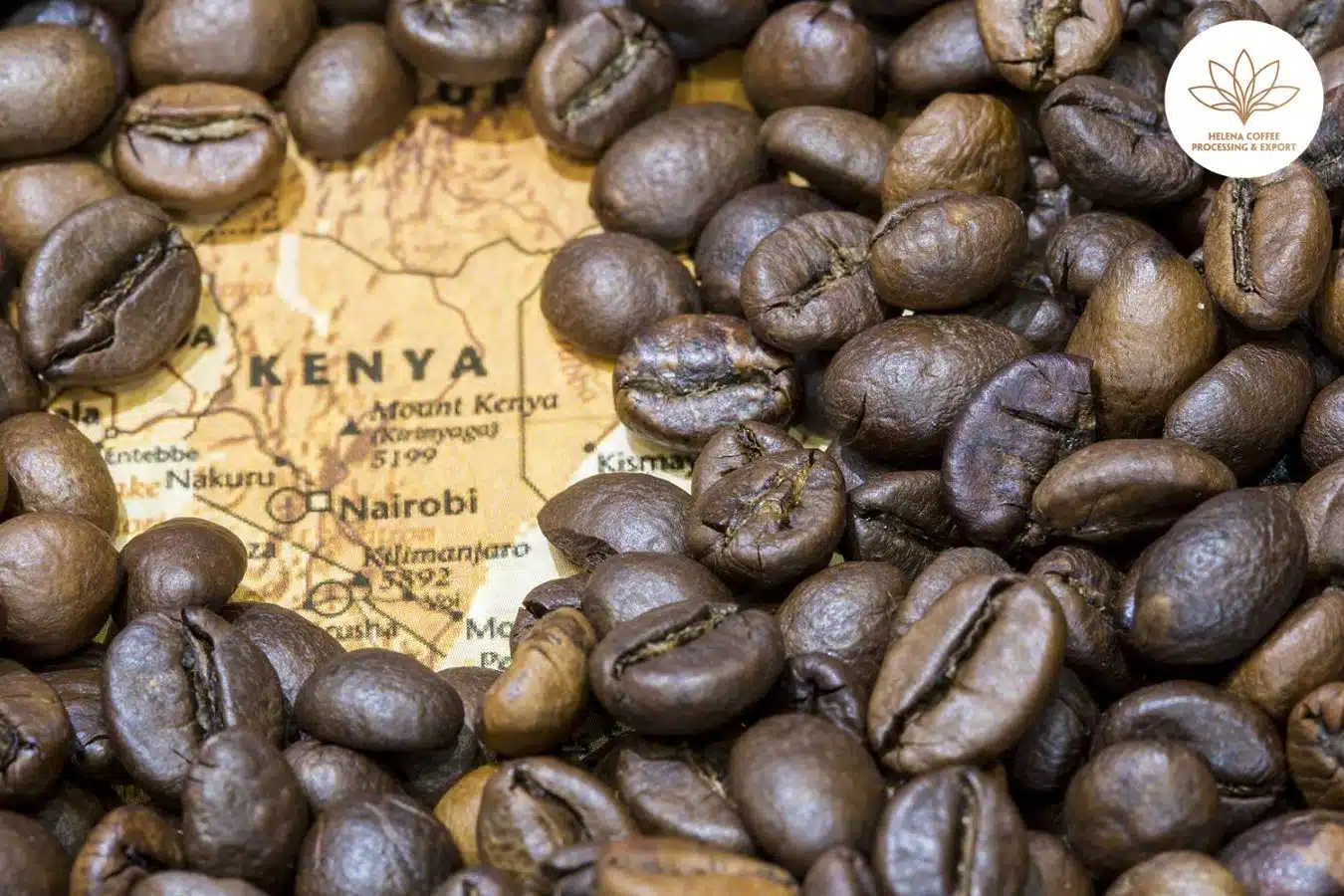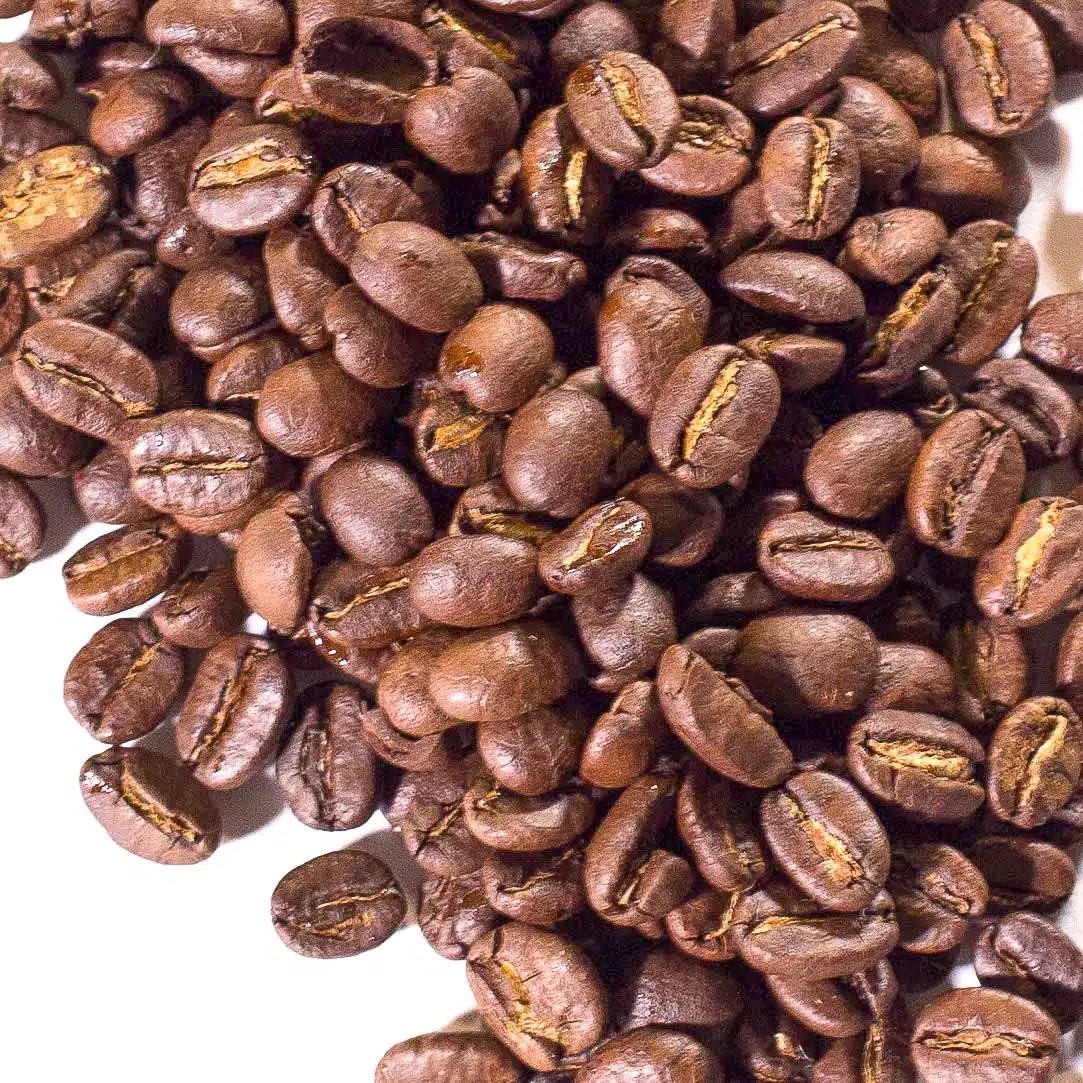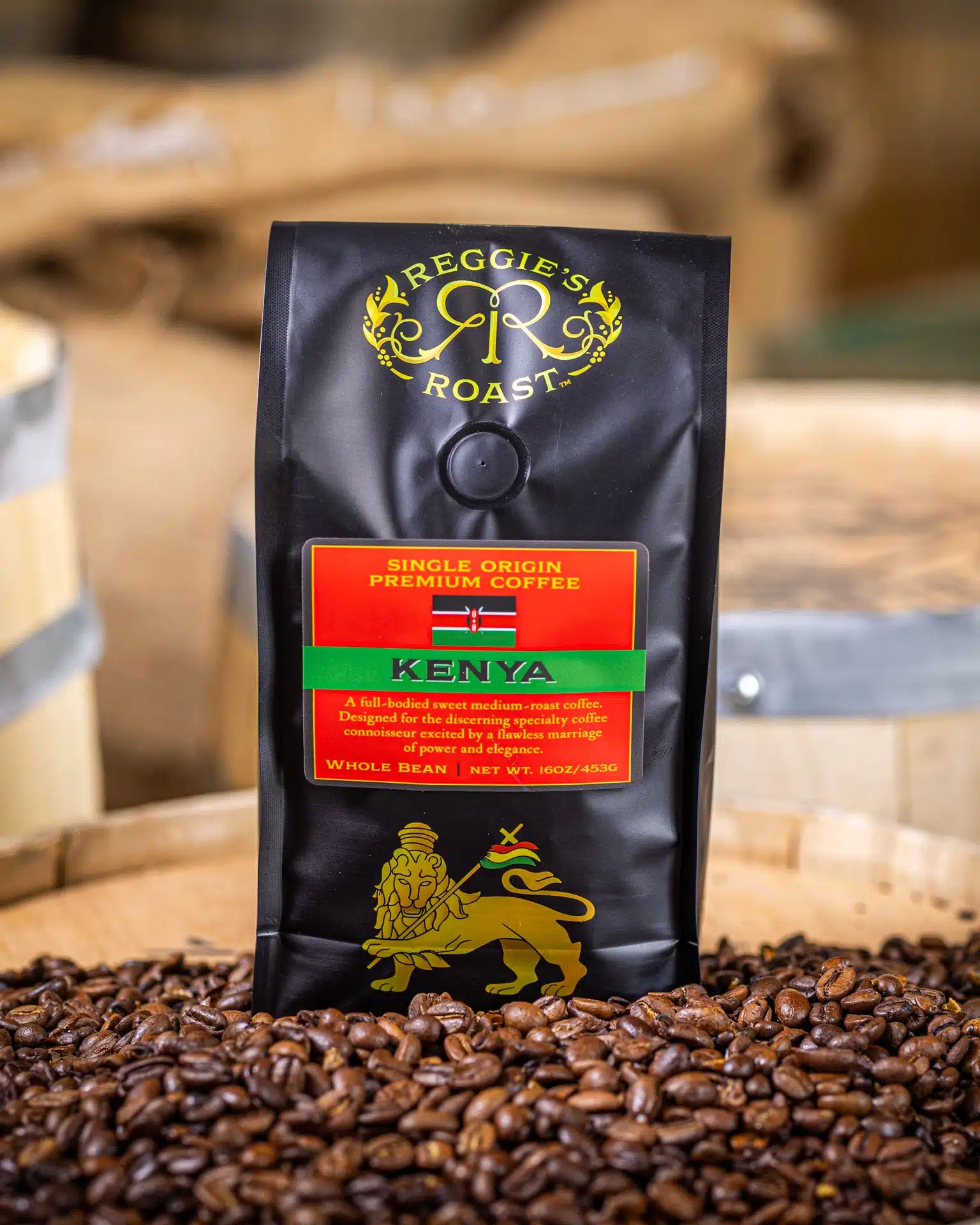Kenyan coffee stands out for its rich flavors and vibrant aromas, making it a favorite among coffee enthusiasts worldwide. Understanding how to make Kenyan coffee allows you to savor its unique characteristics, which stem from the region’s ideal growing conditions. From selecting the right beans to brewing with care, each step is crucial in capturing the essence of this exceptional beverage. By exploring the origins and the essential tools needed, you’ll gain the knowledge to create an authentic cup of this beloved coffee at home.
Understanding the Origins of Kenyan Coffee
Kenyan coffee boasts a rich heritage that deeply intertwines with the country’s culture and landscape. Originating in the fertile highlands of Kenya, coffee cultivation began in the early 20th century, making it a relatively recent addition to the nation’s agricultural offerings. Here’s a closer look at the origins of this beloved beverage:
- Geographical Influence: The unique climate and altitude in regions like Mount Kenya create optimal conditions for coffee cultivation. The volcanic soil contributes to the vibrant flavors found in Kenyan coffee.
- Varietals: Primarily, Kenyan coffee consists of Arabica beans, which are highly esteemed for their quality. Varietals such as SL28 and SL34 are particularly renowned for their bright acidity and complex flavor profiles.
- Growing Practices: Many farmers adhere to traditional methods, often practicing shade-growing to maintain soil health and promote biodiversity. This commitment to sustainable farming enhances the distinct taste of Kenyan coffee.
- Cultural Significance: Coffee is not just a cash crop in Kenya; it embodies social gatherings and rituals. It fosters community connections, making the coffee-drinking experience genuinely enriching.
Understanding the origins of Kenyan coffee allows enthusiasts to appreciate the depth and heritage infused in every cup. As you brew your next cup, recognize the journey of these beans from their native land to your palate.

The Unique Characteristics of Kenyan Coffee Beans
Kenyan coffee stands out for its exceptional quality and unique flavor profile. Here are some characteristics that make Kenyan coffee truly remarkable:
- Growing Regions: Kenya’s high altitudes and fertile volcanic soil provide ideal conditions for cultivating coffee. Regions like Nyeri, Kirinyaga, and Nakuru are renowned for their premium beans.
- Flavor Notes: Typically, Kenyan coffee exhibits bright acidity with a complex flavor profile. Common tasting notes include:
- Berry: Especially blackcurrant and blueberry, adding a fruity essence.
- Citrus: Lemon and lime tones provide a refreshing finish.
- Wine-Like Quality: The juicy, full-bodied taste enriches the overall experience.
- Aroma: The fragrance of Kenyan coffee is often described as herbal with hints of florals, providing a delicious prelude to each sip.
- Processing Method: Most Kenyan coffee undergoes the wet processing method, enhancing its brightness and clarity. This meticulous process ensures only the highest quality beans are selected.
Comparison with other coffee origins:
| Characteristic | Kenyan Coffee | Colombian Coffee | Ethiopian Coffee |
|---|---|---|---|
| Acidity | High and Bright | Medium | Varies (often floral) |
| Flavor Profile | Fruity and Jammy | Nutty and Chocolate | Floral and Wine-Like |
| Processing Method | Wet | Washed | Both (washed and natural) |
These distinctive traits not only highlight the uniqueness of Kenyan coffee but also enrich your coffee-drinking experience. Make sure to savor every cup!
Choosing the Right Coffee Beans
When it comes to crafting the perfect cup of kenyan coffee, selecting the right beans is crucial. Kenyan coffee beans are renowned for their vibrant flavors and aroma, but not all beans are created equal. Here’s how to choose the best:
1. Origin Matters
- Look for beans sourced from specific regions in Kenya, such as Nyeri, Kirinyaga, or Nakuru. Each area produces distinct flavor profiles.
2. Bean Variety
- Arabica vs. Robusta: Kenyan coffee predominantly comes from Arabica beans, which are sweeter and have more acidity. Avoid Robusta for their bitter taste.
3. Grade of Coffee
- Kenyan coffee is graded based on bean size and density:
- AA: Large, high-quality beans with excellent flavor.
- A: Slightly smaller but still good quality.
- AB: A mix of both A and B beans.
4. Processing Method
- Washed Processing: Most Kenyan coffee uses this method, enhancing the clarity of flavors. Look for ‘washed’ on the label to ensure you get that classic brightness in your brew.
5. Freshness is Key
- Always check the roast date. Freshly roasted beans (within 2 to 4 weeks) will provide the best flavor and aroma in your kenyan coffee.
By choosing the right beans, you enhance your coffee experience and bring out the unique character of Kenyan coffee in every cup.
The Importance of Freshness in Coffee
Freshness plays a pivotal role in brewing a quality cup of Kenyan coffee. When coffee beans lose their freshness, they can develop stale flavors that overshadow the coffee’s rich and vibrant characteristics.
Key reasons why freshness matters:
- Flavor Preservation: Freshly roasted Kenyan coffee beans retain their natural oils and aromas. Over time, exposure to air, light, and moisture degrades these elements, leading to a flat taste.
- Optimal Caffeine Levels: Fresh beans provide the ideal caffeine kick that coffee lovers crave. As beans age, caffeine content may diminish.
- Aroma Experience: The captivating scent of freshly brewed Kenyan coffee relies on the freshness of the beans. Stale coffee can lead to a disharmonious aroma, diminishing the overall drinking experience.
Maximize freshness with these tips:
- Buy Whole Beans: Purchase whole beans instead of pre-ground coffee to retain the flavor and aroma until you’re ready to brew.
- Proper Storage: Store your Kenyan coffee beans in an airtight container in a cool, dark place. Avoid the fridge or freezer, as moisture can harm the beans.
- Brew Soon: Aim to brew your coffee within two weeks after roasting to experience its peak freshness and flavor profile.
In summary, to truly enjoy the essence of Kenyan coffee, prioritize the freshness of your beans for a delightful cup every time.

Essential Tools for Brewing Kenyan Coffee
To brew the perfect cup of Kenyan coffee, you need the right tools. Each piece of equipment plays a critical role in enhancing the rich flavors and aromas unique to Kenyan coffee. Here’s a concise list of essential tools that will elevate your brewing experience:
- Coffee Grinder: A burr grinder is ideal for achieving a consistent grind, which is vital for extracting the complex flavors of Kenyan coffee beans. Aim for a medium-coarse grind for brewing methods like pour-over.
- Scale: Precision is essential in brewing. Use a kitchen scale to measure coffee and water accurately. A ratio of 1:15 (coffee to water) is recommended for optimal taste.
- Brewing Device: Choose a brewing method that suits your taste. Popular options include:
- French Press: Perfect for a full-bodied cup.
- Pour-Over: Offers delicate flavor extraction.
- Aeropress: Great for a quick and easy brew.
- Kettle: An electric kettle with a temperature control feature ensures you brew Kenyan coffee at the optimal temperature, typically around 195°F to 205°F.
- Thermometer: If your kettle doesn’t have temperature control, a thermometer helps you achieve the right brewing temperature.
By utilizing these essential tools, you’ll unlock the full potential of your Kenyan coffee, showcasing its vibrant acidity and rich body. A great cup of Kenyan coffee starts with quality equipment, making your brewing process enjoyable and satisfying!
Step-by-Step Process to Brew Kenyan Coffee
Brewing the perfect cup of Kenyan coffee requires attention to detail and a few simple steps. Follow this guide to savor the rich flavors and aromas that Kenyan coffee is known for.
- Gather Your Ingredients and Equipment:
- Fresh Kenyan coffee beans
- Clean, filtered water
- Grinder (preferably burr)
- Brewing method (French press, pour-over, or AeroPress)
- Measure Your Coffee:
- Use 1 to 2 tablespoons of coffee per 6 ounces of water, depending on your strength preference.
- Grind the Coffee Beans:
- Grind the Kenyan coffee beans to a medium-coarse texture for most brewing methods, ensuring an even extraction.
- Heat the Water:
- Heat your filtered water to about 200°F (93°C). Avoid boiling water, as it can scorch the coffee.
- Begin Brewing:
- French Press: Add coffee grounds, pour in water, stir gently, and let steep for 4 minutes before pressing down the plunger.
- Pour-Over: Place a filter in your dripper, add coffee grounds, and slowly pour water in a circular motion for optimal saturation.
- AeroPress: Add coffee and water following the manufacturer’s instructions, then press down smoothly.
- Serve and Enjoy:
- Pour the brewed coffee into your favorite mug and relish the captivating notes of fruity acidity and rich body typical of Kenyan coffee.
By following these steps, you ensure a delightful experience, capturing the essence of Kenya’s coffee heritage. Enjoy every sip!
Tips for Enhancing the Coffee Experience
Brewing kenyan coffee can be a delightful ritual, but enhancing that experience takes it to another level. Here are some tips to help you enjoy a richer, more flavorful cup:
- Water Quality: Use filtered water to extract the best flavors from kenyan coffee. The taste of your coffee greatly depends on the water’s purity.
- Proper Grind Size: For kenyan coffee, aim for a medium grind. This strikes a balance between over-extraction and under-extraction, ensuring you capture the nuanced flavors.
- Brewing Temperature: Brew your coffee at a temperature between 195°F and 205°F. Too hot can scorch the beans, while too cool won’t extract enough flavors.
- Experiment with Ratios: The golden coffee-to-water ratio is typically 1:15. However, don’t hesitate to adjust this to your taste preference. More coffee can enhance strength, whereas less will give you a milder cup.
- Add a Twist: Consider adding spices like cinnamon or cardamom to your kenyan coffee for a unique flavor dimension.
- Mind the Freshness: Always brew with freshly roasted beans. Stale beans can significantly diminish the coffee’s vibrant profile.
- Enjoy Mindfully: Take the time to appreciate the aroma and flavor notes. Kenyan coffee often offers berry-like notes, brightness, and a delightful acidity that deserves your full attention.
By incorporating these tips, you can elevate your coffee experience and savor all that kenyan coffee has to offer!

Serving Suggestions for Kenyan Coffee
Serving Kenyan coffee is an art that not only enhances the overall experience but also complements its unique flavor profile. Here are some thoughtful suggestions to make the most of your cup:
- Plain Brew: Start with a classic cup of kenyan coffee. Its bright acidity and fruity notes shine when served black, allowing the rich flavors to unfold entirely.
- With Milk or Cream: A splash of milk or cream can soften the boldness of kenyan coffee. Opt for whole milk or a touch of cream to create a harmonious balance without overpowering its character.
- Sweeteners: If you prefer a sweeter taste, consider natural sweeteners like honey or agave syrup. These options can enhance the fruity notes inherent in kenyan coffee.
- Spices: Experiment by adding a pinch of cinnamon or cardamom to your brew. These spices pair wonderfully with the vibrant flavors in kenyan coffee, elevating the sensory experience.
- Chilled Brew: For warmer days, serve kenyan coffee as an iced coffee. Brew it strong, chill it down, and serve over ice for a refreshing twist.
- Garnishes: A twist of lemon or a sprinkle of cocoa powder on top can introduce an extra layer of flavor, making your cup visually appealing and delicious.
By thoughtfully considering how you serve kenyan coffee, you can enhance its unique qualities and truly enjoy its exceptional taste.
Exploring Pairings with Kenyan Coffee
Pairing food with kenyan coffee can elevate your coffee experience, highlighting its rich flavors and complex notes. Here are some delightful pairings to consider:
- Pastries and Croissants: The buttery, flaky texture of croissants or pastries complements the fruity acidity of Kenyan coffee beautifully.
- Chocolate: Dark chocolate, especially with a high cocoa content, pairs wonderfully, enhancing the winey notes typically found in Kenyan coffee.
- Spicy Dishes: The bold flavors in dishes like spicy curries or chilies bring out the sweet undertones of Kenyan coffee, creating a harmonious balance.
- Cheeses: Aged cheeses, such as Gouda or Cheddar, work well due to their strong flavors that contrast nicely with the coffee’s brightness.
- Fruits: Fresh fruits like berries or citrus can mirror the fruity undertones of Kenyan coffee, creating a refreshing palate experience.
| Food Pairing | Flavor Profile Matched |
|---|---|
| Pastries | Buttery and flaky texture |
| Dark Chocolate | Rich and bold sweetness |
| Spicy Curries | Balanced acidity |
| Aged Cheeses | Strong and savory notes |
| Fresh Fruits | Fruity and bright flavors |
As you explore these pairings, remember that the goal is to create synergy with the vibrant characteristics of kenyan coffee. Enjoy discovering the perfect match for your brewed cup!
Common Mistakes to Avoid When Brewing Coffee
Brewing the perfect cup of kenyan coffee can be a delightful experience, but it’s easy to make mistakes that can ruin its unique flavors. Here are some common pitfalls to avoid:
- Using stale coffee beans: Freshness is key. Always use freshly roasted kenyan coffee beans to enjoy their vibrant flavors.
- Incorrect grind size: The grind size significantly impacts extraction. For kenyan coffee, aim for a medium grind to balance flavor and brewing time.
- Wrong water temperature: Too hot or too cold water can lead to a bitter or under-extracted brew. Ideal water temperature is between 195°F and 205°F (90°C – 96°C).
- Inaccurate coffee-to-water ratio: Using too much or too little coffee can skew the taste. A general guideline is 1-2 tablespoons of coffee for every 6 ounces of water.
- Ignoring brewing time: Each brewing method has an optimal steeping time. For example, pour-over methods usually require 3-4 minutes for perfect extraction.
- Neglecting equipment cleanliness: Old coffee oils can taint the flavor. Regularly clean all equipment to keep your kenyan coffee tasting pure.
By avoiding these common mistakes, you can ensure that each cup of your kenyan coffee reflects its rich heritage and unique flavors. Happy brewing!

Frequently Asked Questions
What type of coffee beans are used for Kenyan coffee?
Kenyan coffee is primarily made from Arabica beans, specifically the SL28 and SL34 varieties, which are renowned for their bright acidity and fruity flavors. These beans are grown at high altitudes in Kenya’s ideal coffee-growing regions, resulting in a distinct taste profile that showcases berry, citrus, and floral notes. The careful cultivation and processing of these beans contribute significantly to the overall quality and uniqueness of Kenyan coffee.
How do I brew Kenyan coffee at home?
Brewing Kenyan coffee at home can be a delightful experience. Start by using freshly ground Kenyan coffee beans, ideally medium to coarse grind, depending on your brewing method. For a popular method, use a pour-over or French press. If using a pour-over, heat filtered water to about 200°F (93°C) and gradually pour it over the coffee grounds, allowing it to bloom and release its aromas. For a French press, combine ground coffee with hot water, let it steep for about four minutes, and then press down the plunger gently. Enjoy the vibrant and complex flavors!
What is the best way to store Kenyan coffee beans?
To maintain the freshness and flavor of Kenyan coffee beans, it’s essential to store them properly. Keep the beans in an airtight container in a cool, dark place away from direct sunlight and moisture. Avoid storing them in the fridge or freezer, as fluctuating temperatures can cause condensation, which deteriorates the beans. Ideally, consume your coffee beans within a month of roasting for the best flavor, and always grind them just before brewing for maximum freshness.
What distinguishes Kenyan coffee from other coffee types?
Kenyan coffee stands out due to its unique growing conditions, particularly the high altitudes, volcanic soil, and distinct climate. These factors contribute to its bright acidity, full body, and a fruity, wine-like flavor profile, often characterized by berry, citrus, and floral notes. Additionally, the careful harvesting and processing methods, including handpicking and rigorous quality control, further differentiate it from coffees produced in other regions, creating a rich tasting experience that coffee lovers cherish.
Can I use Kenyan coffee for espresso?
Yes, you can use Kenyan coffee for espresso, although it is more commonly brewed using methods such as pour-over or French press that highlight its delicate flavors. When using Kenyan coffee for espresso, ensure that you grind the beans finely and adjust the brewing parameters to balance its bright acidity with the rich crema that espresso offers. This can result in a unique and satisfying espresso shot, showcasing the distinctive qualities of Kenyan coffee.

